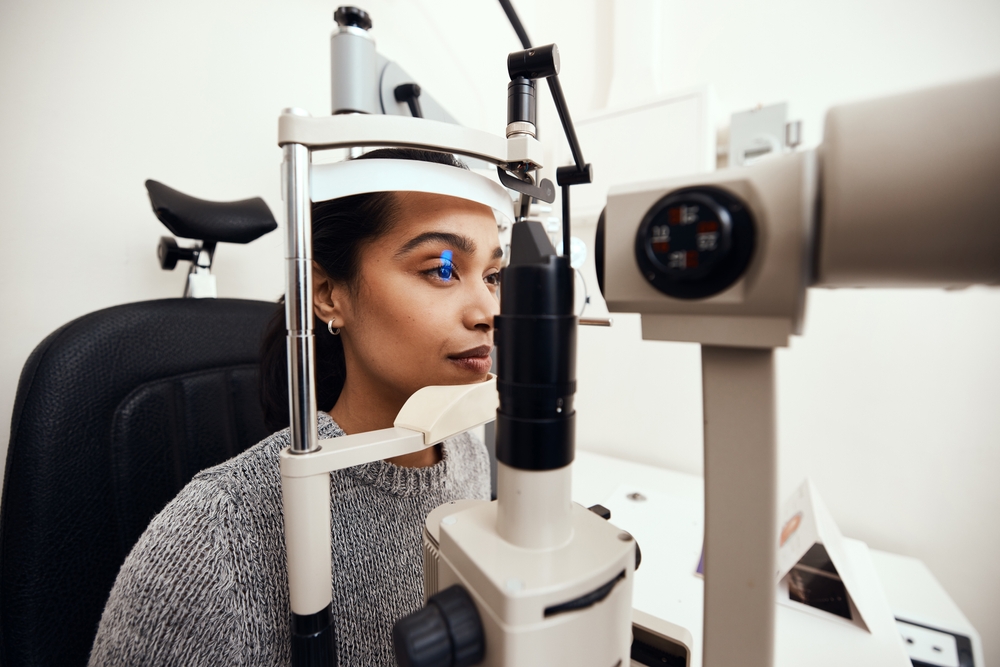
Your vision is an essential part of your daily life, impacting everything from reading and driving to recognizing faces and enjoying your favorite activities. A comprehensive eye exam is one of the best ways to protect your eye health and ensure you’re seeing clearly. Whether you have perfect vision or rely on corrective lenses, regular eye exams are a crucial step in maintaining overall wellness.
What Is a Comprehensive Eye Exam?
A comprehensive eye exam goes beyond a simple vision screening. It is a thorough evaluation of your eye health and visual function. Unlike quick vision tests that only check for clarity at a distance, a comprehensive eye exam includes multiple assessments to detect underlying conditions that may not present immediate symptoms.
What to Expect During Your Exam
During your visit, your eye doctor will perform a series of tests to assess various aspects of your vision and eye health. These may include:
Visual Acuity Test – Measures how clearly you see at different distances using an eye chart.
Refraction Test – Determines your prescription for glasses or contact lenses.
Eye Movement & Coordination Test – Evaluates how well your eyes work together.
Slit Lamp Examination – Uses a special microscope to examine the front structures of your eye, including the cornea, iris, and lens.
Retinal Exam – Checks the back of the eye, including the retina, optic nerve, and blood vessels, to detect issues such as macular degeneration, diabetic eye disease, or retinal detachment.
Eye Pressure Test (Tonometry) – Screens for glaucoma by measuring intraocular pressure.
Dilation – Dilating drops may be used to widen the pupils, allowing for a better view of the retina and optic nerve.
Why Are Comprehensive Eye Exams Important?
Many eye conditions develop gradually and may not cause noticeable symptoms until they reach an advanced stage. A comprehensive eye exam helps detect these issues early, when treatment is most effective. Regular exams can help identify:
Refractive Errors – Conditions like nearsightedness, farsightedness, and astigmatism can be corrected with glasses or contact lenses.
Glaucoma – Often called the "silent thief of sight," glaucoma can cause irreversible vision loss if left untreated.
Diabetic Eye Disease – Diabetes can lead to complications such as diabetic retinopathy, which can threaten vision if not managed properly.
Cataracts – A common age-related condition that causes clouding of the eye’s lens, impacting vision clarity.
Macular Degeneration – A leading cause of vision loss in older adults, affecting central vision.
Even if you don’t experience vision problems, routine eye exams can detect systemic health issues like high blood pressure, diabetes, and even certain neurological conditions.
How Often Should You Have an Eye Exam?
The frequency of eye exams depends on your age, risk factors, and eye health history. General recommendations include:
Children – First exam at 6 months, then at age 3, before starting school, and annually thereafter.
Adults Under 40 – Every year unless otherwise advised by an eye doctor.
Adults 40 and Over – Annual exams are recommended, as age-related eye conditions become more common.
Individuals with Risk Factors – Those with diabetes, a family history of eye disease, or existing vision conditions may need more frequent exams.
Prioritize Your Eye Health Today
A comprehensive eye exam is a proactive way to maintain clear vision and detect potential health concerns before they become serious. At Envision Eyecare, Dr. Romaguera is dedicated to providing personalized, thorough eye care to help you see your best.
Schedule your comprehensive eye exam with Envision Eyecare to ensure your optimal vision and eye health. Visit our office in Phoenix, Arizona, or call (602) 494-7336 to book an appointment today.





